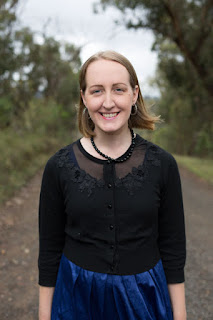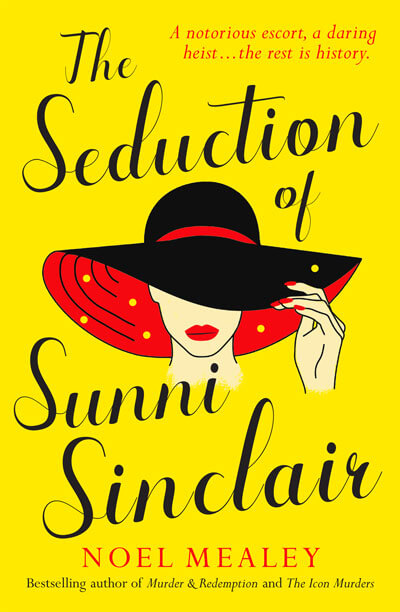Never Good at Maths is a collection of contrasts and voices, ruminating on the everyday, our global, and personal passions. Except Maths. (Spoiler Alert) Kate Maxwell’s passion for Maths is not a topic explored in any tangible way. But her poems are delicate and gritty, whimsical, sharp, even if decidedly unnumeric. She paints pictures and tells stories in ever-changing tones and voices. At times satirical or lighthearted, and then deeply moving and personal, many of the poems resonate with raw honesty or humour. With vivid imagery, the underlying beauty of our world is evoked with fresh perspectives.
Never Good at Maths
Never Good at Maths is a collection of contrasts and voices, ruminating on the everyday, our global, and personal passions. Except Maths. (Spoiler Alert) Kate Maxwell’s passion for Maths is not a topic explored in any tangible way. But her poems are delicate and gritty, whimsical, sharp, even if decidedly unnumeric.
Kate Maxwell
Kate Maxwell is a Sydney-based writer who has been published and awarded in Australian and International literary magazines for many years. Her work has appeared, or is forthcoming, in journals such as fourW, Hecate, Linq, Swyntax, Verandah, Cordite, Meniscus, Brilliant Flash Fiction, and Blood and Bourbon.
Sample
Crossing Borders
Past Dead Man’s Hill
we follow a petrol tanker
into flat brown and grey
where power lines
stretch like spider silk
across this never end.
Caught in the driver’s window
white muscular clouds
paint a silver-edged halo
about your nose and jaw.
Right now, I’d drive with you
into forever.
360 degrees of sky
and the sun blazing
like the blinding eye of God;
too bright
too beautiful
too painful to meet.
Over ragged scrub
prey birds glide
scouring the map of earth
for hidden life.
We stop by the skeleton
of an old stone house
where I stand lookout
for snakes
watch fence wire shake
as you wade into
dung-coloured grass
to get a better photo.
Back in the car, with nothing
to say, we flow through
an un-peopled panorama
still and unswerving as patience.
This blue-domed church
presses silence to the windscreen.
Never Good at Maths
In your algebraic mind
my little looks or tilted chin
are recognised and given symbols;
that colour in my sigh
the warmth of a whisper
on your cheek
and patterns in my palms
that pulse upon your chest
in coded script.
You’ve kissed these hands
in shortened breath
and called them, God.
Noting acquiescence
and frequency of smiles
you’ve formulated a system
of relationships, measured
the angle of an eyebrow
length of silences
or heaviness of your name
dropped from a mouth
explored and classified
as positive or negative.
Cupped into the flesh
of your sleep
I’ve watched numbers
change on the bedside table
a kaleidoscope of you
tangling through thoughts
as minutes slowly drip
into long nights.
You’re content with tested
calculations, yet
I’ve noted fear and confusion
in the furrows of your brow
the grey flecks of your eyes
when equations crumble.
Heroine’s Edge
Take away one letter and you’re left
with the fastest acting opiate drug
often blamed, for siren singing souls
to a lustful watery doom:
even our best, named after vice.
Ever cursed in myth and legend
as serpent-haired monsters
or beauteous bewitchers
who launch a thousand ships of war
with their fatal faces
we shoulder centuries of suspicion
that no Saint of Calcutta
or martyred Joan
can ever take from us.
So we stand or kneel
in whichever pose is allocated
until some bastard sneers
‘You fight like a girl’
as if we had a choice.
That’s when I catch my breath
shake the snake strands from my eyes
and hiss in softest deadly voice
these breasts are made of marble
and I’m used to bleeding
so, stand aside and call me Pandora.
| Weight | N/A |
|---|---|
| Dimensions | N/A |
| Editions | Ebook, PB |
| Options | ePub, PB, pdf |























IP (Interactive Publications Pty Ltd)
This is the debut collection of an already published and awarded writer with a well-developed poetic style, and a strong awareness of how language and form work together to convey meaning. To read Kate Maxwell’s poems in Never Good at Maths is to enter a world of social conscience, of ironic humour and satire at the expense of pretentiousness, privilege and inhumanity, and to listen to the not-so-small personal voice of the poet. A recurrent device is that of poetic ventriloquy, of subject matter spoken through a persona, to both distance the poet and reinforce her stance. In each case, Maxwell’s language invokes the spoken idiom to good effect.
The opening poem, “Crossing Borders”, showcases some of the poet’s imagistic and descriptive skills: “where power lines/stretch like spider silk/across this never end.” The heart of the poem lies in the metaphor of the connectedness between landscape and lovers, in the second stanza:
Caught in the driver’s window
white muscular clouds
paint a silver-edged halo
about your nose and jaw.
Right now I’d drive with you
into forever.
The eponymous “Never Good at Maths”, another wry love poem, uses mathematical metaphors so well it negates its own title:
You’re content with tested
calculations, yet
I’ve noted fear and confusion
in the furrows of your brow
the grey flecks of your eyes
when equations crumble.
“I Could Have Been a Contender” speaks with the failed voice of a woman retired into comfortable domesticity:
Are you listening?
I plead silently from the board.
Can you hear my creativity winding down?
Each year they learn a little
wear me down a lot and I am tired of scrubbing at rocks
to make gemstones.
In this poem, the volte-face of its conclusion reveals the further punishment of a little self-knowledge:
I could have been a contender
I mumble rebelliously
to my old self that never was.
But she doesn’t believe me.
“Boss of the Sandpit”, with its unstated reference to Donald Trump (“So you start building a wall…”), exemplifies Maxwell’s ironic ventriloquy, allowing the protagonist no room for self-knowledge or empathy:
Let’s make the sandpit great again,
drive Tonka Trucks through
those stupid single bucket castles
with their dumb stick fences, plastic goats
and sheep. We’ll make a huge castle instead,
the biggest, best one of all.
Nobody makes castles like me.
In its exploration of everyday characters and scenarios, whether with sharp-edged wit or fellow-feeling, the poems in Never Good at Maths will strike a chord with readers, requiring them to re-assess many current issues.
– Margaret Bradstock, author of Brief Garden